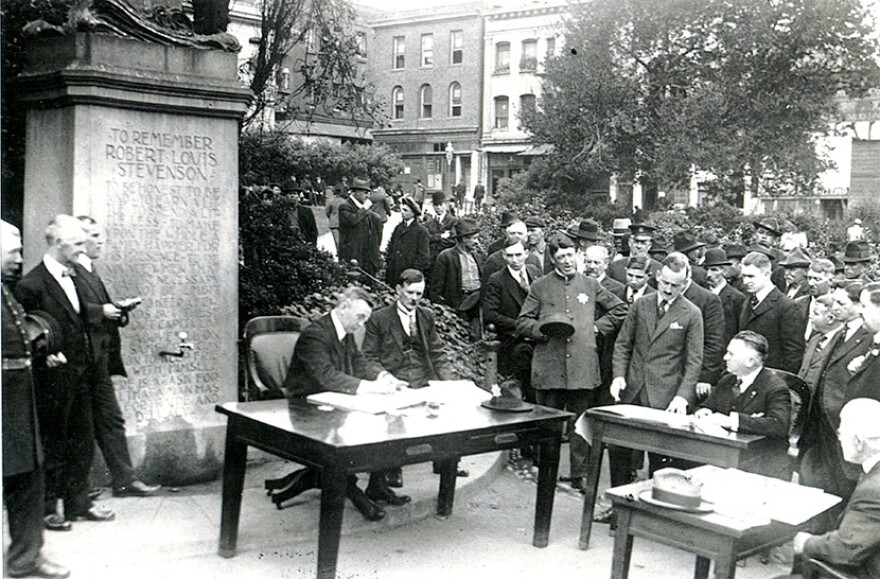Dr. Alex Navarro from the University of Michigan Center for the History of Medicine says there are some similarities and several differences between the pandemic of 1918 and what's happening now. He talks with WEMU's Lisa Barry about the epidemiological and social aspects of what he says currently shows the markers of what could be "an incredibly deadly pandemic."
Dr. Navarro says he and his colleagues spent many years studying the 1918 pandemic for various government reports. Now they are collecting data and writing about our current global health crisis for the University of Michigan Center for the History of Medicine. He says they believe up to 675,000 people died in the US during 1918 pandemic with the number world wide being between 20 and 50 million people.

He says he says it’s important that we be very careful about continued community mitigation as we stay in place as we try to get back to some sense of normal until we get a vaccine.

Dr. Navarro says there are social and epidemiolocial aspects to pandemic and opposition to wearing a mask also occurred over a hundred years ago. That prompted public campaigns and slogans encouraging people to wear masks, including “Don’t be a mask slacker!” He adds that he doesn’t think the economy is going to recover until we’re on the other side of the pandemic, and that is not going to happen if people keeps circulating and we have huge spikes and waves of cases.
Adding, "Until there is a vaccine, this epidemic is going to be with us, and we need to learn how to adapt our behaviors to live under this new reality we have."


Non-commercial, fact based reporting is made possible by your financial support. Make your donation to WEMU today to keep your community NPR station thriving.
Like 89.1 WEMU on Facebook and follow us on Twitter
— Lisa Barry is the host of All Things Considered on WEMU. You can contact Lisa at 734.487.3363, on Twitter @LisaWEMU, or email her at lbarryma@emich.edu






